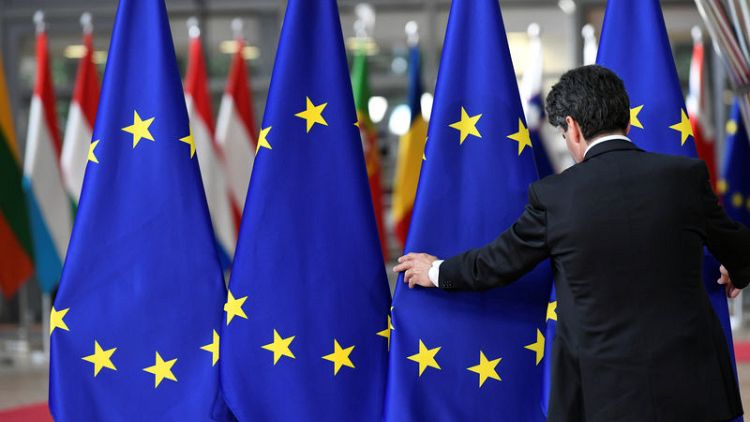By Francesco Guarascio
LUXEMBOURG (Reuters) - European Union finance ministers have discussed on Friday a plan for a 0.2% tax on shares, which Germany sees close to be agreed, although further work remains to be done.
Plans for an EU financial transaction tax (FTT) have stumbled over the past years. After an initial proposal in 2011 was blocked by member governments, a group of states pressed ahead, while the majority of the 28 EU states backed down.
Only ten countries, including France, Germany, Greece, Italy and Spain - are still interested in the common tax.
In a televised debate Germany's Finance Minister Olaf Scholz said a limited deal on a levy could be reached this autumn in order to apply the tax in 2021..
The EU Commission supported his stance, but no other ministers took the floor in the debate on the matter during a meeting attended by representatives of all EU governments.
"It is hard to say whether a deal is possible this time ," an EU official told Reuters.
"There's need for further work. Things seem to be moving in the right direction but we have been there several times before," the official added.
The latest tax proposal would apply to purchases of shares in listed companies headquartered in the EU at a rate of 0.2% or more, according to a text prepared by the German government.
It is less ambitious that the original plan covering derivatives and other financial instruments.
Under the German plan, which is backed by France, the tax would be charged on companies with a market capitalisation above 1 billion euros ($1.1 billion) to avoid hurting smaller businesses. Initial public offerings, market making and intraday trading would also be exempt.
The levy is based on a tax already in place in France.
Discussions continue on how to share the revenue of the tax among those countries considering it. One option is to fund the EU budget, which is used to finance research projects, investments and other economic activities in member states.
"The risk is that the FTT is seen as a tax on liquidity," said Jason Piper, Head of Taxation at ACCA, the Association of Chartered Certified Accountants.
In that case, "those traders who can will simply move their activities to another jurisdiction, with knock-on impacts on the markets that they've deserted," he added. ($1 = 0.8861 euros)
(Reporting by Francesco Guarascio, editing by Louise Heavens)



